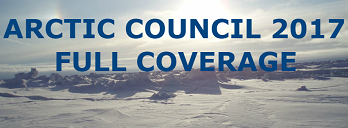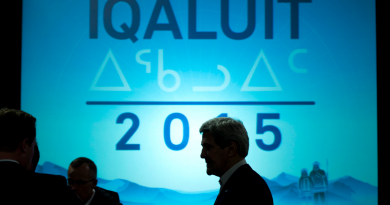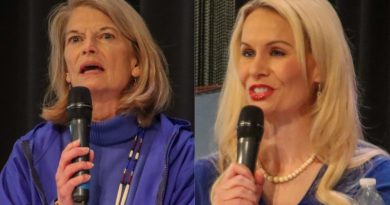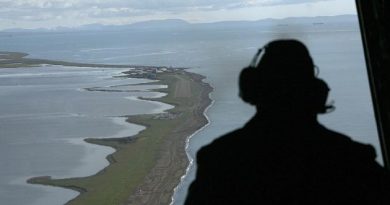U.S. ends Arctic Council chairmanship with reluctance on climate action
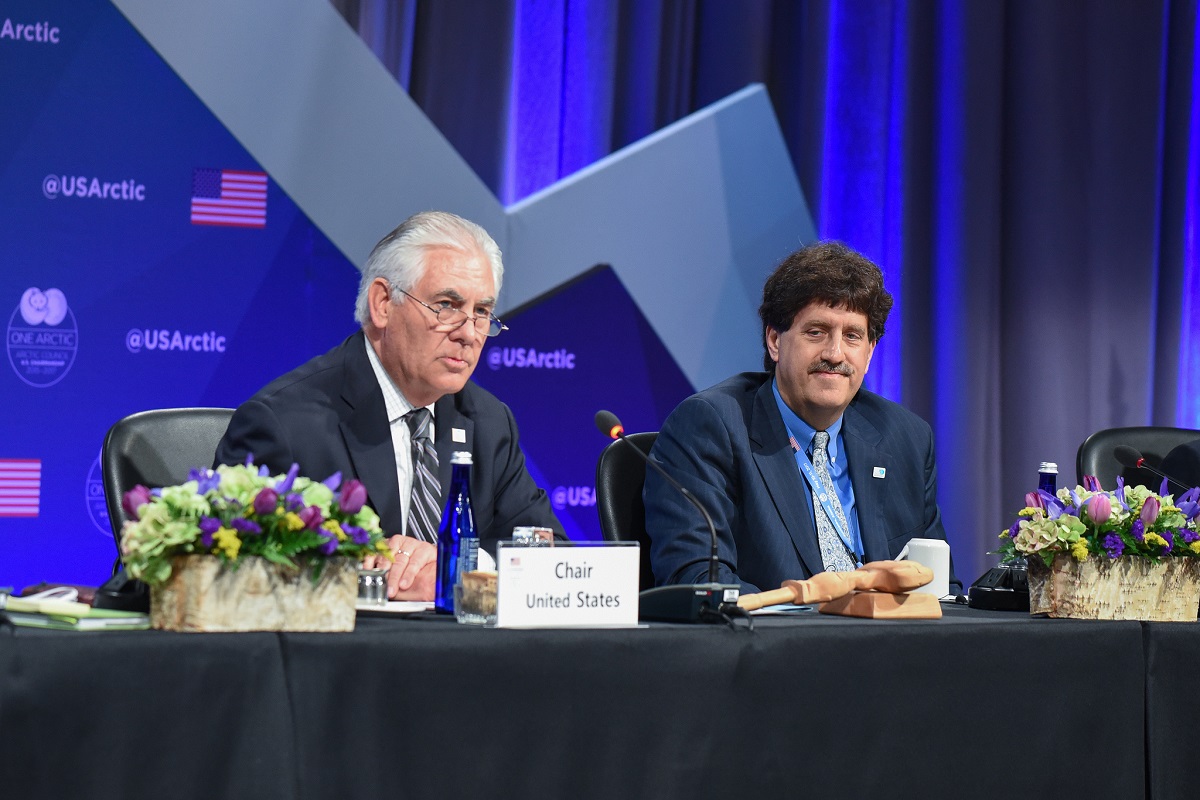
FAIRBANKS — When he opened a meeting of his colleagues from all the Arctic nations, U.S. Secretary of State Rex Tillerson acknowledged the obvious controversy that has clouded relations in the far north: President Trump has made the United States an outlier on climate change and the landmark 2015 Paris Agreement to reduce greenhouse gas emissions.
The Trump administration’s climate-change policy is still unsettled — it has not yet decided what to do about commitments made in Paris under the Obama administration, Tillerson said at the ministerial meeting of the eight-nation Arctic Council, held Thursday in Fairbanks.
With temperatures rising faster in the Arctic than in temperate and tropical regions, the issue has become more urgent among people in the far north.
The Trump administration is still studying what it will do about the Paris Agreement — which the president had previously vowed to abandon — and overall climate policy, Tillerson told the foreign ministers of the other Arctic nations and the leaders of the six indigenous groups that make Arctic Council policy.
“You should know we are taking the time to understand your concerns. We’re not going to rush to make a decision. We’re going to work to make the right decision for the United States,” Tillerson said before formally handing the gavel that symbolized transfer of the two-year Arctic Council chairmanship from the United States to Finland.
Focus on climate change
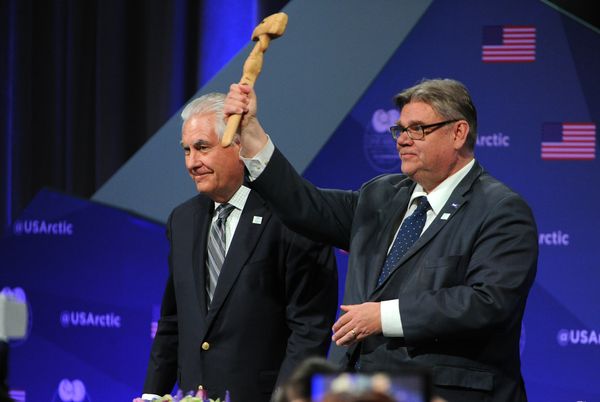
Almost all other Arctic leaders speaking at the meeting were forceful in their message that climate change is real and dramatic, especially in the north, and that it must be addressed by limits to carbon emissions, like those in the Paris targets.
Finland’s chairmanship program emphasizes climate change and ways the Paris emissions targets can mitigate it, said Timo Soini, Finland’s foreign minister.
“We recognize that global warming is the main driver of change in the Arctic,” Soini said.
He and others talked about the toll of Arctic climate change — thawing permafrost, disappearing summer sea ice, fast-eroding shorelines, changes in fish and wildlife
Swedish Foreign Minister Margot Elisabeth Wallstrom, for one, invoked the expected economic costs of Arctic warming. She cited cumulative costs of up to $90 trillion identified in the Arctic Council’s newly published Snow, Water, Ice and Permafrost in the Arctic Report, a document that also predicted that summer sea ice would be gone in about two decades.
“I wonder what the planet would say if she had a seat around our table,” Wallstrom said.
“We are connected to the land”
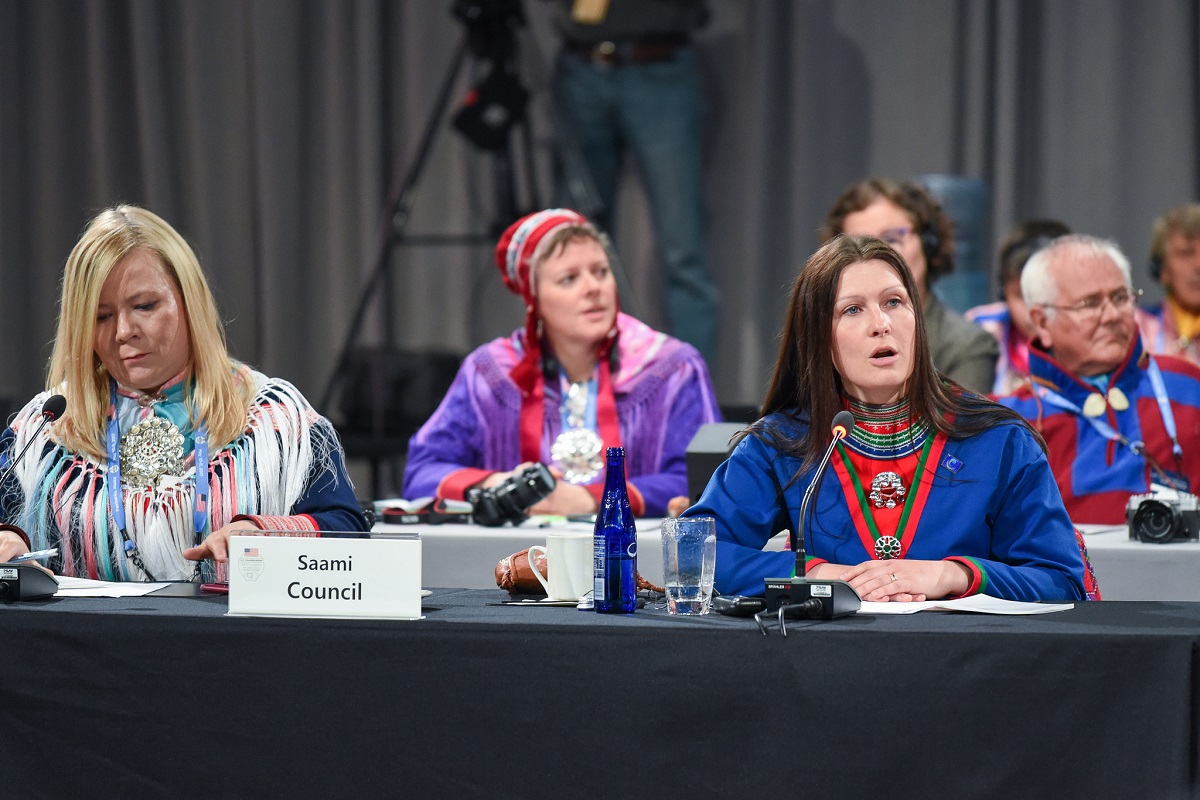
Some of the strongest language came from the indigenous leaders.
Patricia Lekanoff Gregory, speaking for the Aleut International Association, cited ocean acidification, warm-water-induced species migration, sea level rise and increasing frequency of extreme weather events as climate impacts that threaten her people.
“All of these things are real and they are happening right now,” she said. “We cannot let politics interfere with the actions that are needed now.”
Bill Erasmus of the Arctic Athabaskan Council described climate change as a threat to his people’s culture and identity. “We are connected to the land. That is who we are,” he said
Asa Larsson Blind of the Saami Council, representing indigenous people of northern Europe, urged the delegates to stand firm in favor of climate action and environmental protection.
“If our shared values are put at risk, the policies should change, not the values,” she said. “The Saami Council urges everyone to put Mother Nature first.”
Trump and the Paris Agreement
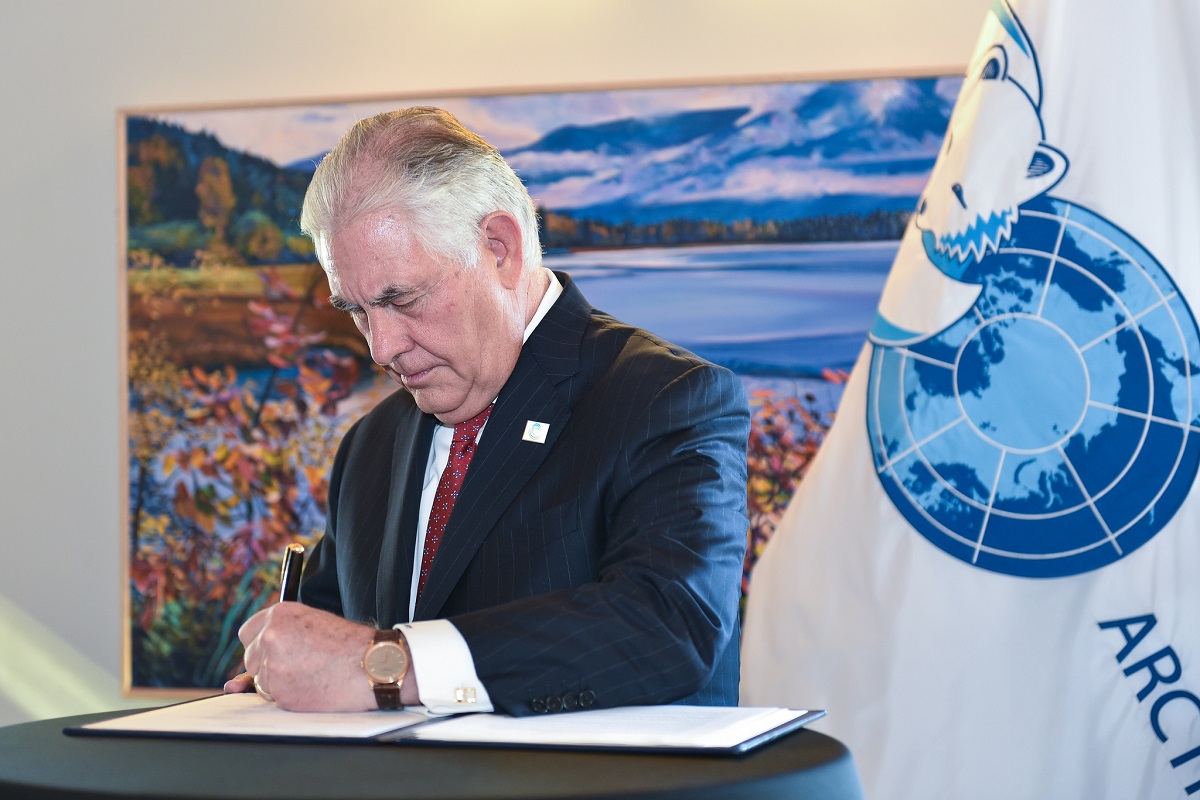
In the end, the Fairbanks Declaration, signed by the ministers of the eight nations, cites climate change in the Arctic and the importance of the Paris Agreement in slowing it. The agreement seeks to reduce emissions and slow global warming to 2 degrees Celsius.
Wording about climate change, the Paris Agreement and renewable energy had been challenged in the past week by the U.S. delegation, but it was mostly restored, a Finnish official said.
“I think we were able to push the U.S. back as much as possible,” Rene Solderman, a senior Arctic adviser, told reporters after the ministerial session.
The pushback to Trump’s climate stances was a general theme at the Arctic Council meeting and related Fairbanks events held this week. Several experts criticized Trump’s environmental policies and his past promises to pull out of the Paris Agreement.
“You can, of course, believe what you want. But if you look at reality, it’s a different story,” said Marin Forsius, chairman of the council’s Arctic Monitoring and Assessment Programme working group.
The Arctic Council cannot compel any government action — it acts in an advisory role — but it can provide information to help governments craft their policies, Forsius said. Right now, the information supports rapid action, because “the longer you wait, the harder it will be” to get to any slowdown of climate change, he said.
“You need a rapid implementation of this Paris Agreement. It would make a big difference to the Arctic and the whole globe. It will be important that all countries implement this agreement and go even further,” he said.
Aside from adopting its statement of consensus priorities and positions, collected in the “Fairbanks Declaration” document, the council issued several plans and strategies to address subjects including the spread of invasive species, the climate-warming pollution caused in the Arctic by black carbon and the persistent problems of poor water and sanitation services in remote communities.
Related stories from around the North:
Canada: Arctic nations sign scientific cooperation agreement, Radio Canada International
Denmark/Greenland: Q&A: Impact assessments in the Arctic – What Canada and Greenland can learn from each other, Eye on the Arctic
Finland: Arctic Council presents united front as Finland takes over from U.S., Eye on the Arctic
Iceland: The Arctic Council at 20 – View from Iceland, Eye on the Arctic
Norway: Norway and Finland talk Arctic with China, The Independent Barents Observer
Russia: Arctic Council ministerial – View from Russia, Eye on the Arctic
Sweden: Sweden’s glaciers are melting away, Radio Sweden
United States: Deciding Arctic future in Fairbanks and Bonn, blog by Irene Quaile, Deutsche Welle
The Arctic Council chairmanship moves from the United States to Finland on May 11, 2017 in Fairbanks, Alaska. Eye on the Arctic’s Eilís Quinn along with EOTA media partners and contributors will be bringing you stories, interviews and analysis leading up to the handover.
→ Read our full coverage here!

